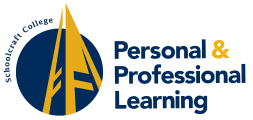Remote Pilot
Flying drones is fun! It also includes the responsibility to be safe and know the current FAA regulations. Learn the basics to fly as a hobbyist and/or prepare to pass the FAA Part 107 Exam required for certification for remote pilots who want to fly for profit.

This program is made possible in part by funding from the Schoolcraft College Foundation.
Remote Pilot Class Offerings
Class offerings vary throughout the year and may include:
Frequently Asked Questions
Am I a hobbyist or commercial operator?
In general, hobbyists fly model aircraft that are under 55 pounds for enjoyment and not for work, business, or compensation for hire. They fly solely within a visual line-of-sight and abide by all safety regulations. A hobbyist is not required to obtain a Part 107 Certification; however, they must register their aircraft with the FAA.
In general, commercial remote pilots are at least 16 years of age, have passed their Part 107 certification exam at an FAA-approved knowledge testing center, and been issued a Remote Pilot Certificate by the FAA. They seek to fly small unmanned aircraft systems for profit and must abide by regulations under CFR 14 Part 107.
Can I bring my drone to class?
Students should not bring their personal drone to campus. Any class requiring flight will utilize Schoolcraft College equipment.
What prerequisites are required to pursue these classes?
Students must be 16 years of age and must have adequate sensory-motor capability to safely operate a sUAV.
The Part 107 Exam is only offered in the English language.
Who needs to take the sUAS (small Unmanned Aircraft System) Part 107 exam?
Those who want to fly for commercial purposes and need or desire extensive knowledge regarding aircraft performance, airspace, aeronautical charts, weather, procedures and laws regarding commercial use of small unmanned aircraft systems.
Although you do not need a Remote Pilot Certificate to operate sUAS as a hobby, a basic background of aeronautics and the national airspace system will help you to build good habits for safe flying.
How do I schedule my Part 107 exam, where do I take it, and what does it cost?
You can schedule your exam by contacting an FAA authorized knowledge testing center.
Use this site to locate the center closest to you. Contact your chosen location to schedule your exam.
The closest testing site to Schoolcraft College is MIAT College of Technology located at 2955 Haggerty Rd, Canton, MI 48188
The cost is $150.00. This information is subject to change. Contact MIAT at 1-800-447-1310 for the most current information.
How long is the exam? What is the format?
The exam is 60 multiple choice questions and must be completed in two hours (120 minutes). A computer, paper, and a supplement book are provided to test takers. Students must register and pay in advance. A minimum score of 70% is required to pass.
Keep your test report! You will need to reference it when applying for your license.
What should I bring to the exam?
To the exam, bring: valid photo identification including name, date of birth, place of birth, postal mail address, phone number, and email address.
For acceptable forms of identification and questions regarding those under 18, visit the FAA Airman Knowledge Testing identification page.
I passed the Part 107 exam. How do I obtain my Remote Pilot license?
Do not lose your test report! You will need to reference it when applying for your license.
To begin the application process, you must first create an online account in the FAA’s IACRA (Integrated Airman Certification and Rating Application) system and link your score to your profile. Scores are typically uploaded to the system 48-72 hours following test completion.
Once the FAA verifies your score and runs a TSA security background check, a temporary permit can be printed online through the IACRA system, and a license will arrive in the mail to the address provided in your application once processing is complete.
What happens if I don’t pass the exam?
The knowledge testing center will provide you with a score sheet. You may retake the exam after 14 days and must retain your first attempt score sheet. You will give your original score sheet to the proctor.
The score of the most recent test taken is the official score.
What is the current job market? What job search and/or placement assistance is available?
There are extensive and diverse opportunities for skilled remote pilots. Industries using drones include: agriculture, cartography, construction, disaster relief, infrastructure maintenance and repair, law enforcement and surveillance, photography and film, real estate, research, and more.
The Schoolcraft College Career Services department offers free informational workshops on resumè and cover letter writing, interviewing, LinkedIn, and other important topics for job seekers.
Do Remote Pilots have any continuing education requirements?
Remote pilot certificate holders must pass a recurrent knowledge test every two years.
What is included in the class cost?
Current classes include all required materials including any texts and printed resources.
If a course includes practice flying drones, students will use Schoolcraft College drones. Do not bring a drone to class.
Classes do not include the cost to take the Part 107 exam.
How frequently will the classes be offered?
Class offerings will vary throughout the year. Check the Personal & Professional Learning website and print schedule for class listings.
